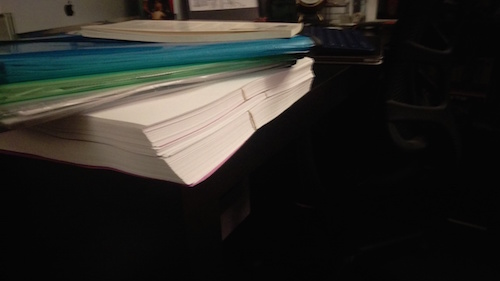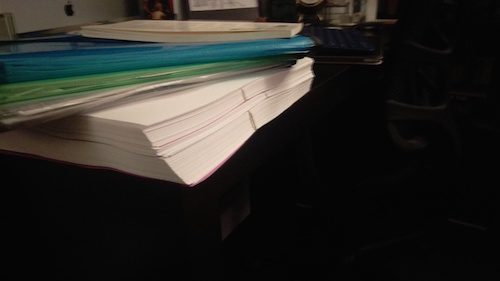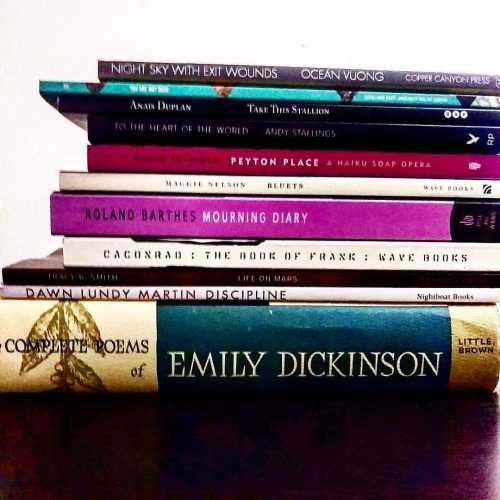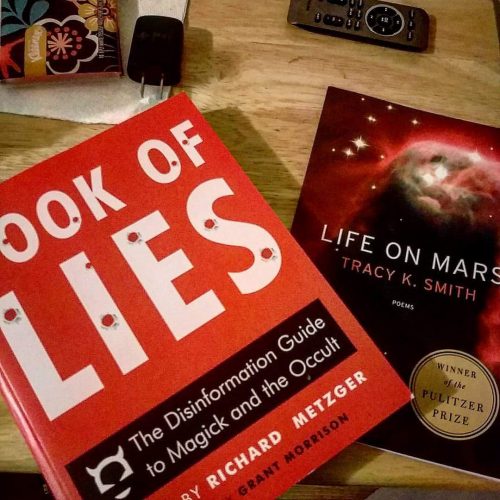
What’s the Workload Like in a Poetry MFA Program?

- A pile of poems and papers I should probably be working on while I write this blog post
As the Graduate Ambassador for the Poetry MFA program, part of my job is to talk with prospective students about our department and answer questions (like what even is an MFA?). The title of this blog is one of the most common questions I’m asked, and it’s simultaneously one of the easiest and hardest questions to answer: What’s the workload like? The easy answer is “you take three classes a semester,” but that doesn’t really help anyone.
The hard answer is “it depends on whether or not you’re ready for grad school and what you seek to gain from an MFA program.”
Earning a graduate degree isn’t going to be easy no matter what school you attend, but it’s also a very different kind of education than your undergrad degree. In the best classes, I have ended up learning as much from my fellow students as from the instructor, and I’ve found it important to be prepared to give that kind of a commitment to my coursework. It’s more work than, and a different kind of work from, the kinds of studying I did as an undergrad but it doesn’t really feel like more work — maybe because it’s work involving something I enjoy. Except for writing essays; that will likely always feel like a bit of a chore for me.

- This was my fall 2016 reading list, roughly.
My first workshop at Columbia was a small one, and in order to ensure we filled up the full time, we would bring in three new poems a week and comment on the three poems from each of our classmates. That was in addition to reading regularly for the course. For some, that already sounds like a hefty workload, and it’s just one of the three classes I was in. But after the first week of simply doing the work rather than figuring out how to do the work, I realized that it was much easier than I expected it to be despite reading 2-300 pages a week for Columbia Poetry Review and studying teaching theory for Composition Theory and Praxis.
My second semester had three classes, the proofing and assembly of Columbia Poetry Review 29, and my first time teaching at Columbia. This semester I am essentially in four graduate level classes (my three normal classes and then serving as an editor for Columbia Poetry Review). Somehow my workload has increased every semester, but I’ve actually felt as though I have more free time than when I started.

- Can you guess whether this shot of my nightstand reading from earlier this year was for school or fun?
If you pursue an MFA to become a better writer, because you love poetry and want to absorb and learn as much as you can from living poets working in the field, the workload will get taken care of; you might even feel inspired by the deadlines. And if you feel a bit overwhelmed, that’s perfectly understandable as well; if I told my younger self the amount of schoolwork I have now, he may have never finished his initial application.
But for those of you who have come here via Googling about the poetry MFA workload, here’s what it’s like: doable. As long as you want to do it.
